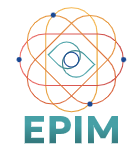Europeana Research Grants
Applicants are invited to submit proposals that address challenges and opportunities related to the reuse of cultural heritage data in research, or provide training to build up the digital capabilities of cultural heritage professionals involved in research projects. The Europeana Research Events Grants are made possible by the European Commission's Connecting Europe Facility (CEF) Programme.

